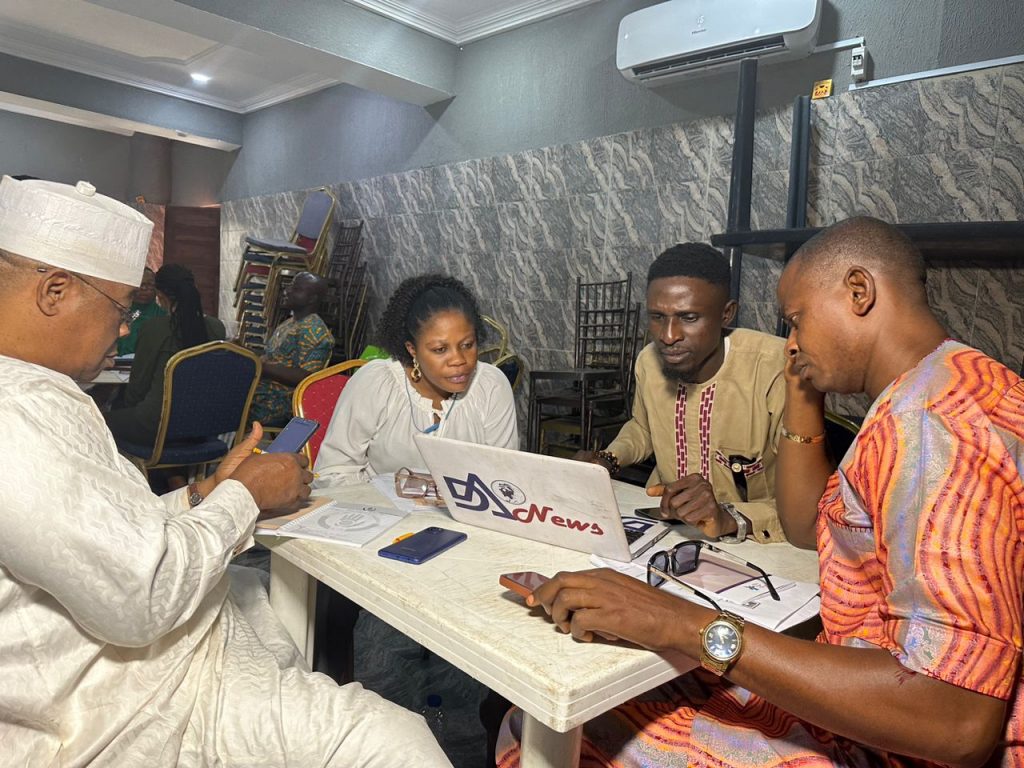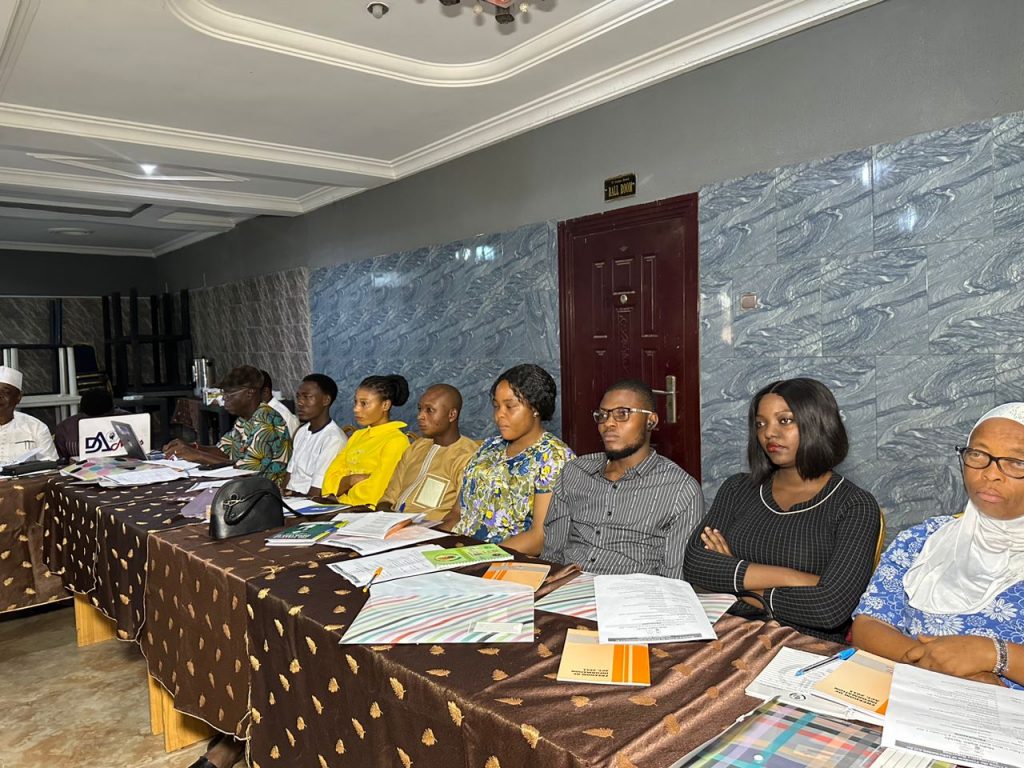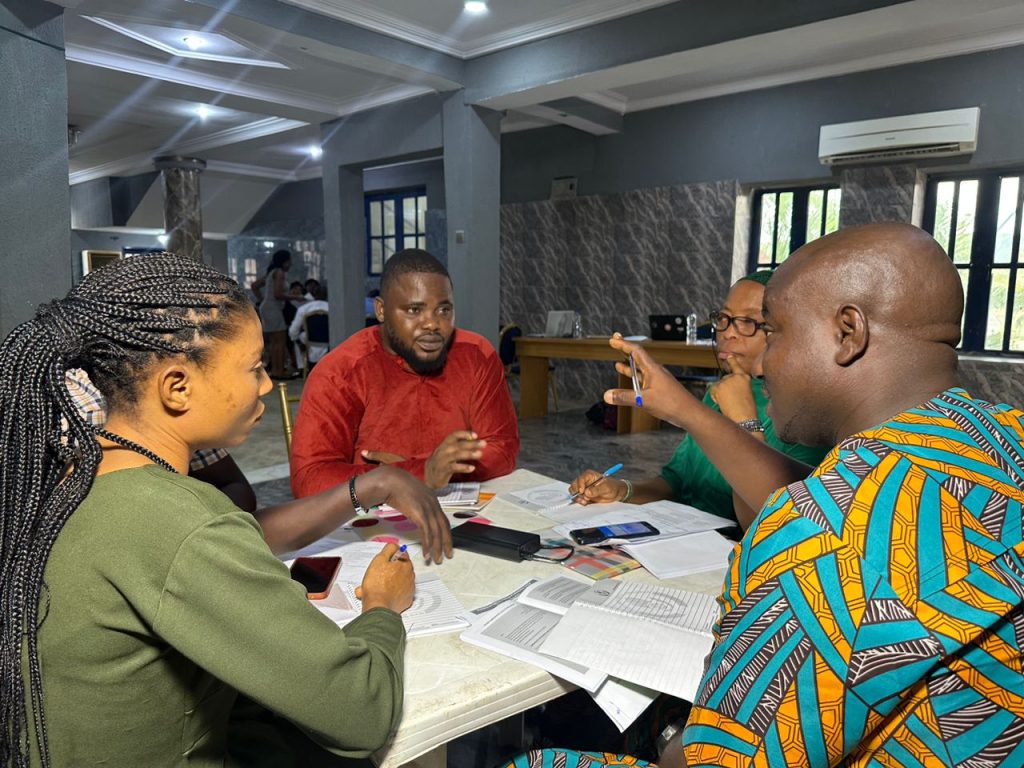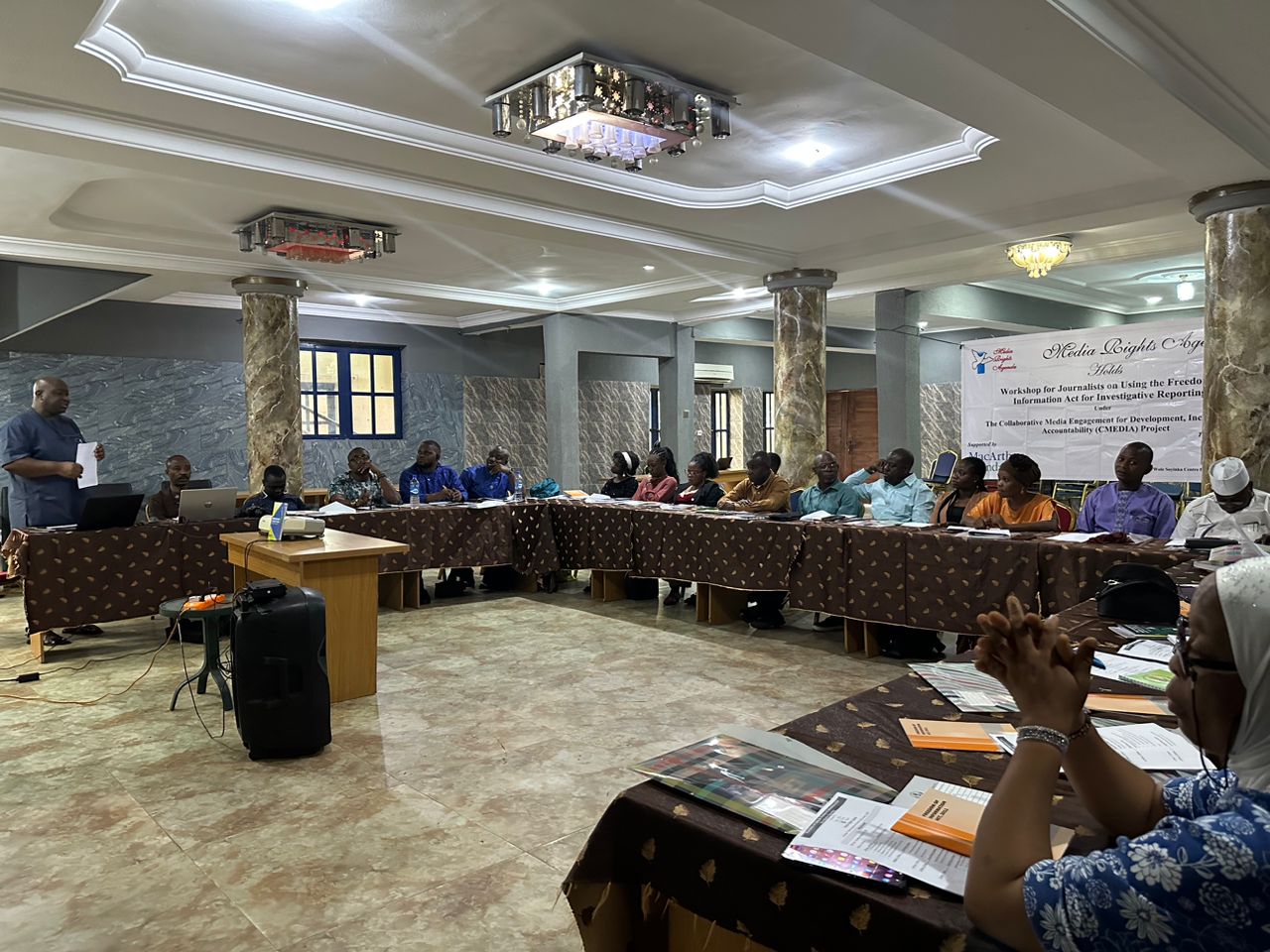By Dare Akogun
The Media Rights Agenda (MRA) has empowered no fewer than 30 journalists with knowledge and usage of the Freedom of Information Act (FOIA) so as to improve investigative reporting skills.
The two days capacity building workshop held in Ibadan the Oyo state capital between October 31 and November 1, 2023, was with support from the MacArthur Foundation through the Wole Soyinka Centre for Investigative Journalism (WSCIJ) under the Collaborative Media Engagement for Development, Inclusion, and Accountability (CMEDIA) Project, a multi-level intervention that supports media independence, improved transparency, accountability, and good governance in state and local governments with more public awareness on the need for accountability, and amplified marginalized voices.

Participants were drawn from early to mid-career journalists working for print, broadcast, and online media organizations in the South West who have not previously undergone any training on how to use the FOI Act.
In his opening remarks the Executive Director Media Rights Agenda, Mr. Edetaen Ojo highlighted the objective of the workshops is to familiarize participating journalists with the FOI Act and its provisions as well as to build their capacity to deploy it effectively as a tool for gathering information and evidence from public institutions and other entities covered by the Act, which they require in the course of conducting investigative reporting.
During his presentation Mr. Ojo, gave the participants an insight into how to decide what investigative reports should be carried out using the FOI, and the relevant steps.
According to him “You may need additional information to conduct your story, that is one reason that will make you put the FOI to good use, even after having a tip from a source.
“In investigative reporting, a tip or source isn’t enough, you must go out there and do your due diligence, and make sure you conduct interviews and fill gaps that are not clear from the documents and records you have in your possession,” he said.
Mr. Ayode Longe, MRA’s Deputy Executive Director, advised participants of commitment to using the FOI Act in their reporting after the training and to subsequently work on stories where they can demonstrate that they relied on the FOI Act to obtain information used in the reporting.
He revealed that MRA will provide them with ongoing support in the form of mentorship on using the FOI Act during the period of their reporting and give them other forms of technical assistance that they may require in the process.

Other facilitators at the workshop are Ms. Obioma Okonkwo, Head of the Legal Department, and Esther Adeniyi the programme officer.
At the end of the training, participants were equipped with practical skills, enabling them to craft FOI requests, monitor responses, verify information, and develop compelling stories rooted in FOI requests.
According to a communique issued after the training journalists are advised to make the effort to read the FOI Act and familiarize themselves with it to enable them to use it effectively for enhanced quality of routine and in-depth media reporting.
It was observed that coverage of routine events by journalists has some value for society as they inform members of the public about those events, however, the excessive preoccupation with such routine reporting while neglecting more in-depth and impactful investigative reporting that help to ensure transparency, accountability, and ultimately, good governance, undermines the power and effectiveness of the media.
According to the communique “Critical media stakeholders such as journalism and mass communication training institutions, media support and media development organizations, media professional bodies and associations as well as media organizations and newsrooms are encouraged to devote more time, effort and resources into creating awareness about the Act among journalists and building their capacity to utilize the Law.
“In addition to the above, in order to engender better and more impactful reporting of various issues, particularly those relating to transparency, accountability, good governance, and development, participants urged these key stakeholders to similarly put more effort and resources into providing continuous training for journalists in other areas such as investigative reporting techniques, fact-checking and information verification tools and approaches as well as the use of artificial intelligence and other emerging technologies which can aid their work,” it reads in part.

Journalists are also advised to take advantage of various tools, which are available digitally, online, and offline, which can enhance their work, including conducting research; analysing data; and verifying information, among others, by identifying such tools, obtaining them, and learning how to use them in order to improve their reporting.
“Journalists should endeavour to give greater prominence to issues affecting women and another marginalized groups. Women and members of other such marginalized groups should also be routinely reflected in news stories as important news sources in addition to focusing attention on how they are impacted by government policies, programmes, and actions,” it added.

